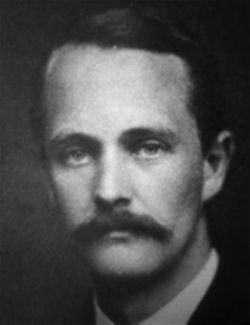The Text is from a broadside in the Bagford collection (i. 65); other broadsides, very similar, are to be found in the Pepys, Roxburghe, and other collections. The ballad has often been reprinted; and more than one oral version has been recovered--much corrupted in transmission.
The Story is apocryphal, as has been shown by research undertaken since Child annotated the ballad; so also are other broadsides, The Seamen's Song of Captain Ward and The Seamen's Song of Dansekar, which deal with Ward. He was a Kentish fisherman, born at Feversham about 1555, who turned pirate after a short service aboard the Lion's Whelp man-of-war. The Rainbow was the name of a ship then in the navy, often mentioned in reports from 1587 onwards; but Professor Sir J. K. Laughton has pointed out that she never fought with Ward. Possibly Rainbow is a corruption of Tramontana, a small cruiser which may have chased him once in the Irish Channel. The fullest account of Ward may be found in an article, unsigned, but written by Mr. John Masefield, in the Gentleman's Magazine for March, 1906, pp. 113-126.
CAPTAIN WARD AND THE RAINBOW
1.
Strike up, you lusty gallants,
With music and sound of drum,
For we have descried a rover
Upon the sea is come;
His name is Captain Ward,
Right well it doth appear,
There has not been such a rover
Found out this thousand year:
2.
For he hath sent unto our King,
The sixth of January,
Desiring that he might come in
With all his company.
'And if your King will let me come
Till I my tale have told,
I will bestow for my ransom,
Full thirty ton of gold.'
3.
'O nay, O nay,' then said our King,
'O nay, this may not be,
To yield to such a rover,
Myself will not agree:
He hath deceived the Frenchman,
Likewise the King of Spain,
And how can he be true to me,
That hath been false to twain?'
4.
With that our King provided
A ship of worthy fame,
Rainbow is she called,
If you would know her name:
Now the gallant Rainbow
She rows upon the sea,
Five hundred gallant seamen
To bear her company.
5.
The Dutchman and the Spaniard,
She made them for to fly,
Also the bonny Frenchman,
As she met him on the sea.
When as this gallant Rainbow
Did come where Ward did lie,
'Where is the captain of this ship?'
This gallant Rainbow did cry.
6.
'O, that am I,' says Captain Ward,
'There's no man bids me lie,
And if thou art the King's fair ship,
Thou art welcome to me.'
'I'll tell thee what,' says Rainbow,
'Our King is in great grief,
That thou shouldst lie upon the sea,
And play the arrant thief,
7.
'And will not let our merchants' ships
Pass as they did before;
Such tidings to our King is come,
Which grieves his heart full sore.'
With that, this gallant Rainbow
She shot, out of her pride,
Full fifty gallant brass pieces
Chargëd on every side.
8.
And yet these gallant shooters
Prevailëd not a pin,
Though they were brass on the outside,
Brave Ward was steel within;
Shoot on, shoot on,' says Captain Ward,
'Your sport well pleaseth me,
And he that first gives over,
Shall yield unto the sea.
9.
'I never wronged an English ship,
But Turk and King of Spain,
For and the jovial Dutchman,
As I met on the main;
If I had known your King
But one-two years before,
I would have saved brave Essex life,
Whose death did grieve me sore.
10.
'Go tell the King of England,
Go tell him thus from me,
If he reigns King of all the land,
I will reign King at sea.'
With that the gallant Rainbow shot,
And shot and shot in vain,
And left the rover's company,
And return'd home again.
11.
'Our royal King of England,
Your ship's returned again,
For Ward's ship is so strong
It never will be ta'en.'
'O everlasting!' says our King,
'I have lost jewels three,
Which would have gone unto the seas
And brought proud Ward to me.
12.
'The first was Lord Clifford,
Earl of Cumberland;
The second was the Lord Mountjoy
As you shall understand;
The third was brave Essex
From field would never flee,
Which would have gone unto the seas,
And brought proud Ward to me.'
Captain Ward And The Rainbow
Frank Sidgwick
Suggested Poems
Explore a curated selection of verses that share themes, styles, and emotional resonance with the poem you've just read.
